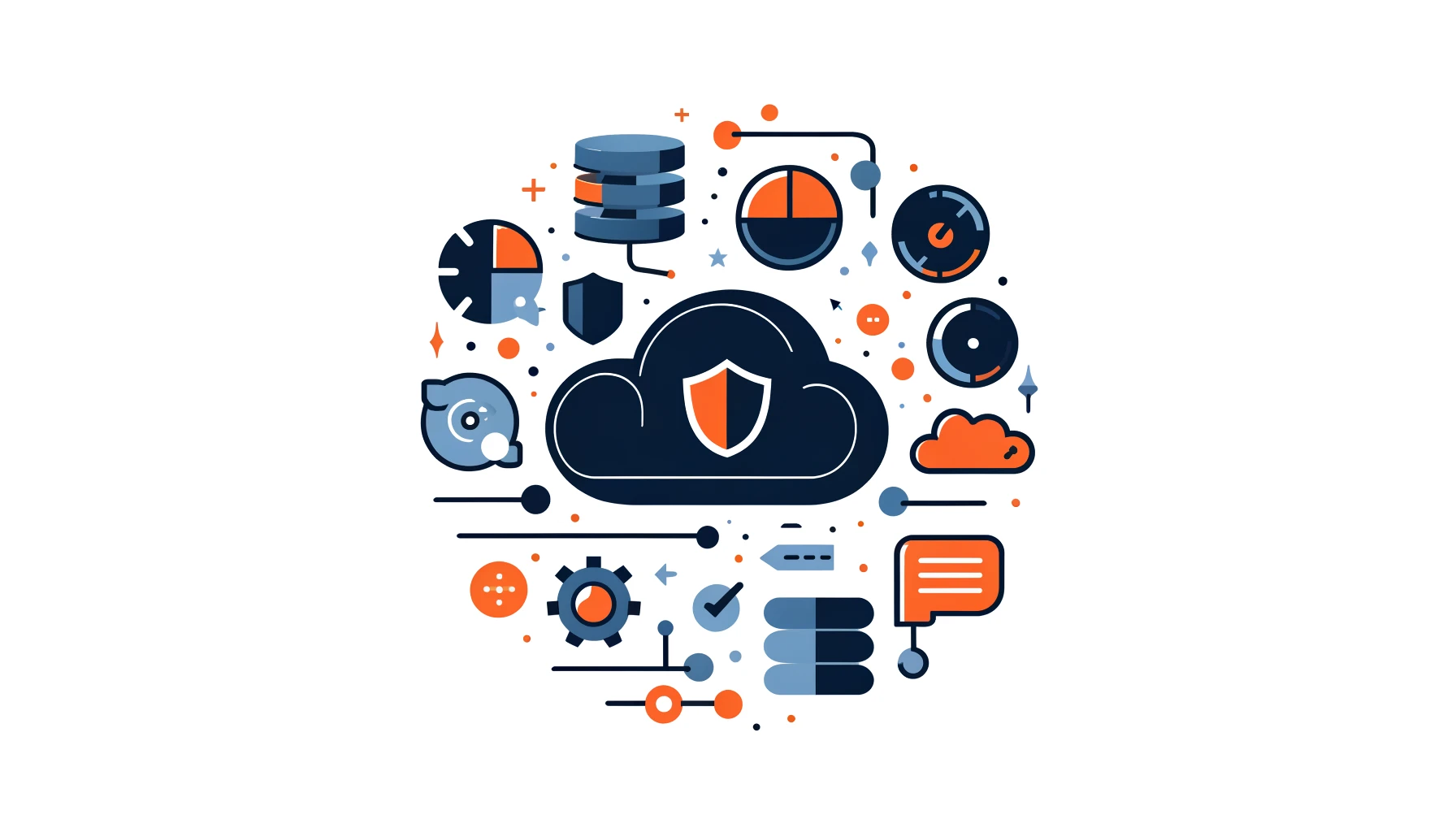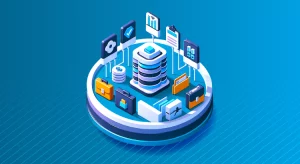
DataSecOps

In today’s data-driven world, organizations are processing and storing massive amounts of sensitive information. Ensuring the security and compliance of this data throughout its lifecycle has become a critical priority. This is the point where DataSecOps becomes relevant.
DataSecOps combines DevOps principles with data security best practices to help organizations deliver secure and compliant data processing pipelines. This piece will discuss DataSecOps and its connection to DevOps. The course will cover open source tools and how they help businesses follow data protection laws.
Understanding DataSecOps
DataSecOps combines data security with DevOps to keep data safe during all stages of processing. This includes collecting, storing, analyzing, and presenting data. DataSecOps is a methodology that combines data security with DevOps practices to create a more secure and efficient environment for organizations.
DataSecOps uses encryption, access controls, and monitoring tools. These tools help to find and reduce security risks. Act on this before malicious individuals can exploit them.
Automation in DataSecOps plays a key role by streamlining security processes and ensuring that it consistently applies security measures across all systems and applications. This helps prevent mistakes and lets organizations react fast to security issues.
DataSecOps helps organizations prevent data breaches by being proactive about security and staying ahead of potential threats. This keeps important information safe and builds trust for the organization. Overall, DataSecOps is essential for ensuring that data remains secure throughout its entire lifecycle.
DataSecOps is crucial in managing data governance and ensuring the security of data flows.
How DataSecOps Relates to DevOps
DevOps combines software development and IT operations to speed up the development process and deliver better software quickly. DataSecOps builds upon the DevOps principles of collaboration, automation, and continuous delivery by adding a security layer to the data processing pipeline.
It unites data engineers, security professionals, and compliance experts to integrate data security into every stage of the development process. By fostering collaboration and automating security processes, DataSecOps enables organizations to deliver secure and compliant data processing pipelines at the speed of DevOps.
Key Components of DataSecOps
Data Discovery and Classification: DataSecOps starts with identifying and classifying sensitive data across the organization. This means using tools to search for private information in databases, files, and cloud storage. The information can include names, health records, and financial data.
The team sorts data by how sensitive it is and what security and compliance rules apply to it. An online store uses a tool to search through its customer database. The tool finds sensitive information such as credit card numbers and email addresses. The tool automatically classifies this data as PII and applies the appropriate security controls.
Access Control and Encryption: DataSecOps focuses on giving users only the permissions they need to do their job. We use access controls to ensure only approved users can access sensitive data during each step of data processing.
Additionally, we encrypt data both at rest and in transit to protect it from unauthorized access.
Example: A healthcare organization uses RBAC to ensure only authorized healthcare professionals can access patient records. The organization also encrypts patient data using AES-256 encryption to protect it from unauthorized access.
Continuous Monitoring and Auditing: DataSecOps involves continuously monitoring the data processing pipeline for security and compliance issues. This includes monitoring user activity, detecting anomalies, and identifying potential security threats. Organizations use automated auditing tools to track data access and ensure that they log all activities for compliance review.
Example: A financial services company uses a security information and event management (SIEM) tool to monitor its data processing pipeline for suspicious activity. The tool immediately sends alerts when it detects potential security threats. This allows the security team to promptly investigate and resolve the issue.
Open Source Tools for DataSecOps
Several open source tools are available that can help organizations implement DataSecOps. Here are a few examples:
- Apache Ranger: Apache Ranger is a framework for enabling, monitoring, and managing comprehensive data security across the Hadoop platform. It creates a central place to set and enforce rules for who can access Hadoop parts like HDFS, Hive, and HBase.
- Apache Sentry: Apache Sentry (retired) is a system that controls access to data and metadata in Apache Hadoop. Organizations can control access to Hadoop data by setting rules for different levels such as database, table, and column.
- Apache Knox: Apache Knox is a REST API gateway for interacting with Apache Hadoop clusters. It provides a single point of authentication and access for Apache Hadoop services. This allows organizations to enforce security policies and control access to Hadoop resources.
- OpenPolicyAgent: OpenPolicyAgent is a general-purpose policy engine that enables unified policy enforcement across the stack. It helps enforce security rules on various systems like Kubernetes, Terraform, and CI/CD pipelines.
Example: A data analytics company uses Apache Ranger to define and enforce access control policies for its Hadoop cluster. The company creates policies that grant specific users access to specific databases and tables based on their job roles. Apache Ranger ensures that only authorized users can access the data they need to perform their job functions.
Complying with Data Security Regulations
DataSecOps helps organizations comply with various data security regulations such as GDPR, HIPAA, and PCI-DSS. By embedding security controls and automating security processes throughout the data processing pipeline, DataSecOps ensures that data remains secure and compliant at every stage. Here are a few examples of how DataSecOps helps with compliance:
- Data Protection by Design and Default: DataSecOps ensures that data security is a top priority from the beginning. This is a key requirement of the GDPR. DataSecOps ensures that it includes data protection in every step of the development process. This starts right at the beginning of the data processing pipeline.
- Access Control and Auditing: DataSecOps focuses on controlling access and auditing to meet HIPAA and PCI-DSS requirements. By implementing strict access controls and logging all data access activities, DataSecOps helps organizations demonstrate compliance with these regulations.
- Continuous Monitoring and Incident Response: DataSecOps involves continuously monitoring the data processing pipeline for security and compliance issues. This helps organizations quickly find and address possible security issues, which is important for following data security rules.
Example: A healthcare organization implements DataSecOps to ensure compliance with HIPAA. The organization uses tools to find and categorize sensitive patient data. They control access based on roles to only allow authorized healthcare professionals to access the data.
They also regularly check for security issues in the data processing pipeline. By doing so, the organization demonstrates compliance with HIPAA’s data privacy and security requirements.
Conclusion
DataSecOps is a powerful method that helps organizations create secure and compliant data processing pipelines quickly. DataSecOps integrates data security throughout development to identify and reduce security risks, prevent data breaches, and comply with security regulations.
Companies can use DataSecOps to maximize their data’s potential and ensure its security and compliance. You achieve this by using appropriate tools and procedures. DataSecOps allows companies to effectively manage and protect their data. It also helps them adhere to regulations and guidelines.
DataSunrise offers user-friendly and flexible tools for database security, audit, and compliance. Our experts can assist you in implementing DataSecOps to ensure your data is always secure and compliant. Contact us today to schedule an online demo. Learn how DataSunrise can help you achieve your data security and compliance goals.
